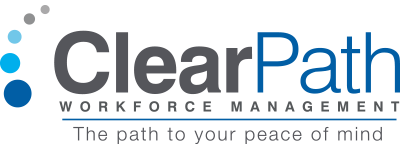Eighty years ago, the Fair Labor Standards Act (FLSA) was signed, creating the Wage and Hour Division (WHD) at the Department of Labor. This landmark legislation established several long-standing pillars of our modern workplace, including the minimum wage, the 40-hour workweek, and overtime. Though much has changed in the American workplace since 1938, the FLSA endures as a vital piece of legislation that ensures Americans receive wages they have earned. Today, WHD’s education and enforcement actions work in concert to educate employers about their responsibilities and drive compliance with this law.1 Other federal agencies to protect workers are:
U.S. Commission on Civil Rights, U.S. Department of Justice Civil Rights Division, Occupational Safety and Health Administration (OSHA), Employee Benefits Security Administration (ESBA) (formerly Pension and Welfare Benefits Administration), U.S. Equal Opportunity Employment Commission (EEOC), U.S. Merit Systems Protection Board.
That’s a lot of agencies to protect a shrinking segment of the U.S. workforce. Eighty years ago, no one could have imagined that so many people would choose to leave their jobs to be self-employed, yet here we are with between 6.9% – 15.5% of the U.S. workforce no longer W-2 employees, depending on how you interpret the latest findings of the U.S. Bureau of Labor Statistics2. It’s 2018 and the “agile workforce” is here, but it’s not protected by existing agencies. Thankfully, several organizations are sprouting up to protect the growing 1099 Independent Contractor and freelancer group. IPSE-U.S., The Association of Independent Workers, and PICA, the Professional Independent Consultants of America, are two that advocate and serve as a beacon of light to guide this growing population of the gig economy.
Celebrating America’s 69 Million Independent Workers
IPSE-U.S., The Association of Independent Workers, is a not-for-profit association that celebrates America’s 68 million independent workers. The organization is passionate about giving independent workers a powerful voice at the policy-making table while forming a vibrant community that empowers members to grow their solo businesses, protect their families, and achieve financial well-being. IPSE-U.S. recently announced the creation of the Declaration of Independents, a statement promoting the freedom and protection of America’s independent workers, freelancers, consultants, and the self-employed. I recently asked Carl Camden, IPSE-U.S. founder and former CEO of Kelly Services, the fourth largest global provider of staffing and workforce solutions, why he is so passionate about this cause. Carl explained,
“When I was with Kelly Services, I became aware that Independent Contractors are one of the most discriminated-against groups in this country. Companies have long treated this group as second-class citizens.”
Carl said he often talks about how the delivery of benefits through employment is particularly unique to the U.S. and an accident of our employment laws. IPSE-U.S. is working to change this and will soon be rolling out new programs to aid and give access to reduced rate benefits usually reserved for and only offered to employees.
Help for self-employed professionals
PICA, the Professional Independent Consultants of America, is a national membership organization that helps self-employed professionals be successful by providing education, tools, and peer-to-peer engagement. It’s an ecosystem of everything a consultant needs to launch, run, and grow their business wherever they are in their consulting lifecycle, from ‘just exploring’ through to ‘well-established’.
I spoke with Liz Steblay, co-founder, and CEO of PICA, about the current environment.
“Corporate America is slow to realize that we’re experiencing a tectonic shift in how work gets done. It’s more efficient for companies to hire specialized talent on a contract basis, and millions of workers want to work this way,” explains Steblay. “The problem is that the related systems, processes, and worker protections haven’t yet adapted. Independent contractors struggle with slow payments, lack of affordable or portable healthcare, and, in some cases, downright bias because they’re a microbusiness without employees.”
PICA helps their members be more efficient in their businesses, enabling them to spend more time focusing on serving their clients. PICA members also benefit financially by applying tips for tax savings and retirement planning.
Work with a leader in the industry for outsourced Human Resources functions associated with contingent workers. ClearPath provides an integrated program model to manage both freelance risk and spend. Our IC compliance tool, ClearIC, provides a multi-step process which includes technology gathering and the human element (2-person review in making an IC status determination). Our adherence to worker classification compliance enables the engagement of this highly skilled talent and expands your talent supply chain. ClearIC™ can automate and simplify the Independent Contractor evaluation process while mitigating your risk via our full-service IC vetting process. Contact ClearPath for a complimentary discovery call and 1:1 review of your current worker status. Let ClearPath be the path to your peace of mind.
1https://blog.dol.gov/2018/06/25/eighty-years-later-fair-labor-standards-act
- Written by: Connie Wendt
- Posted on: August 7, 2018
- Tags: AGENT OF RECORD, EMPLOYER OF RECORD SERVICE, EMPLOYMENT COMPLIANCE, EMPLOYMENT PRACTICES, ENGAGING W-2 WORKERS, HIRING PROCESS, INDEPENDENT CONTRACTOR, INDEPENDENT CONTRACTOR COMPLIANCE, SELF SOURCED WORKERS, SUBCONTRACTORS, W-2 Worker Classification, Workforce Classification

